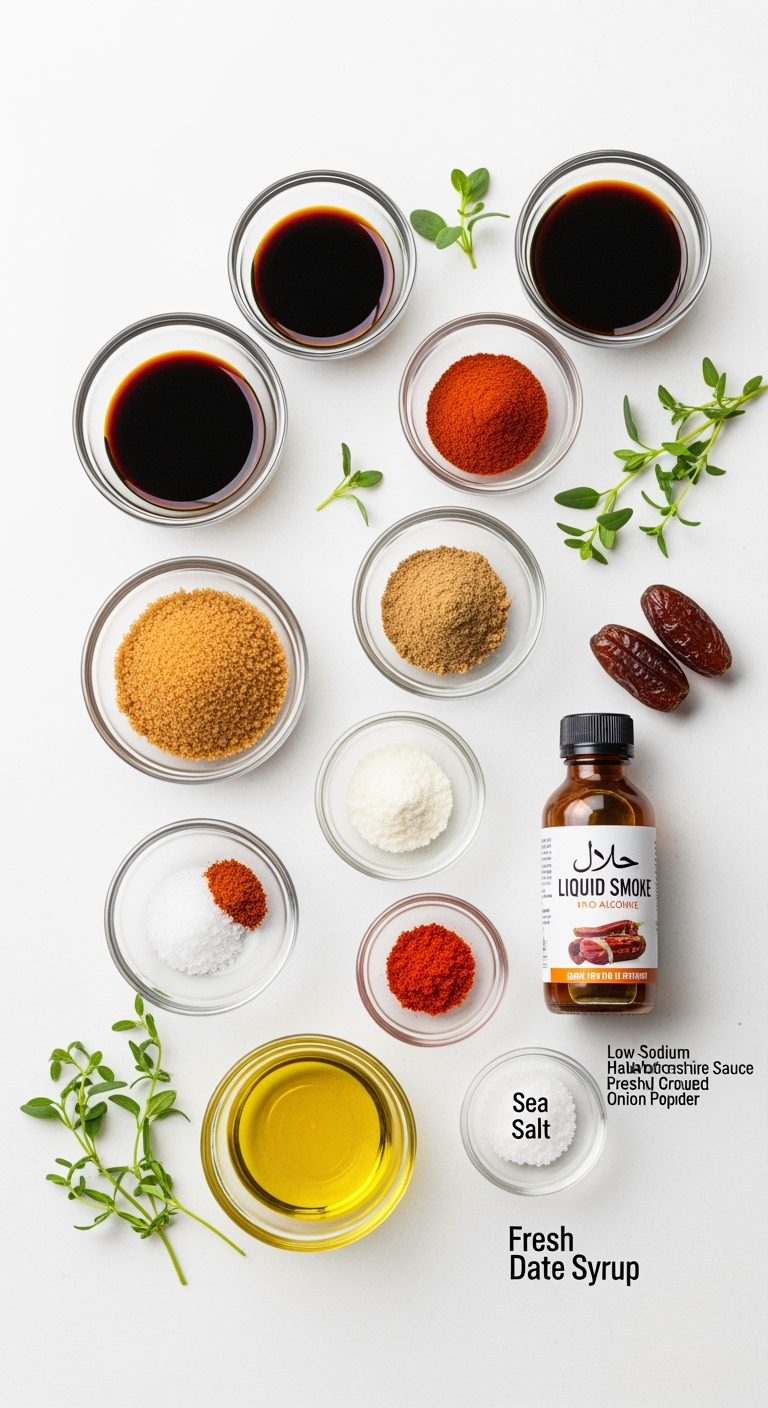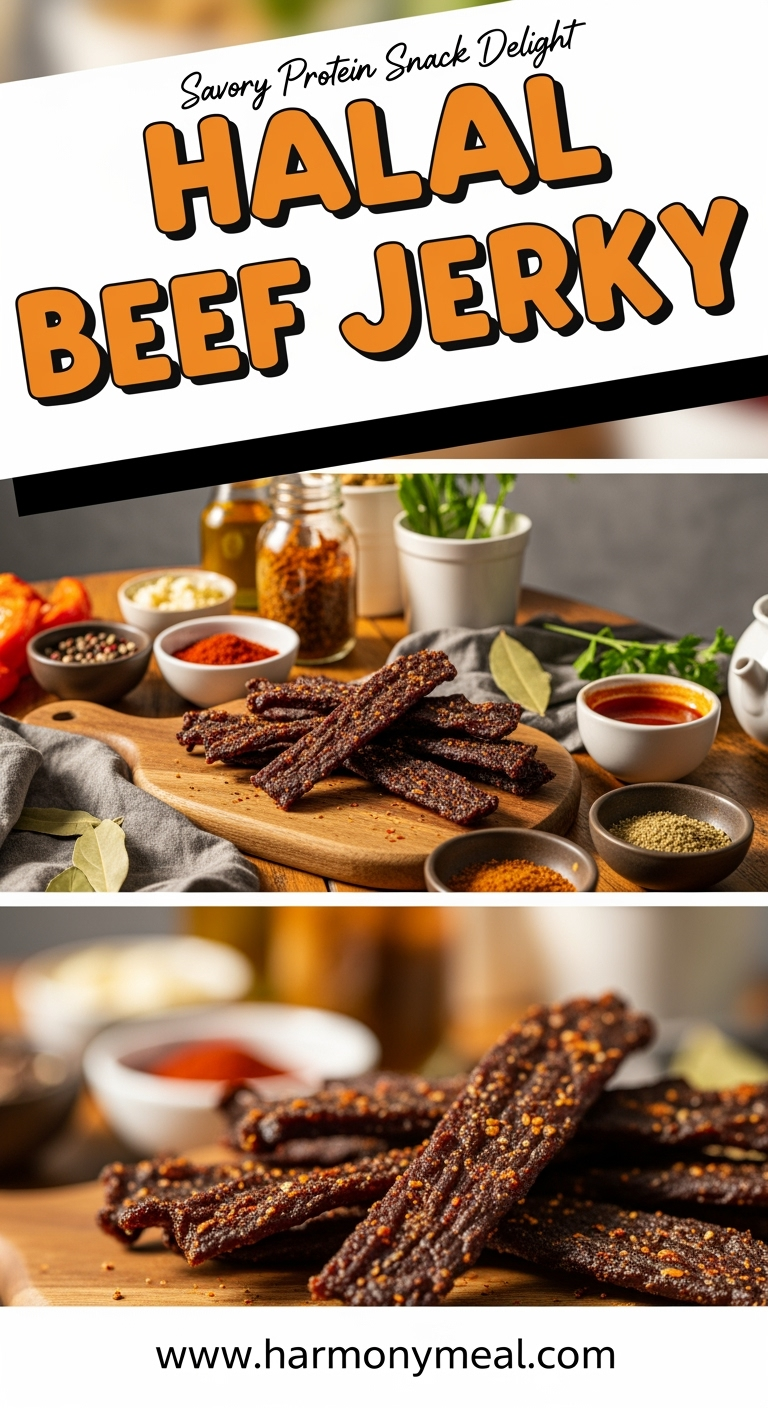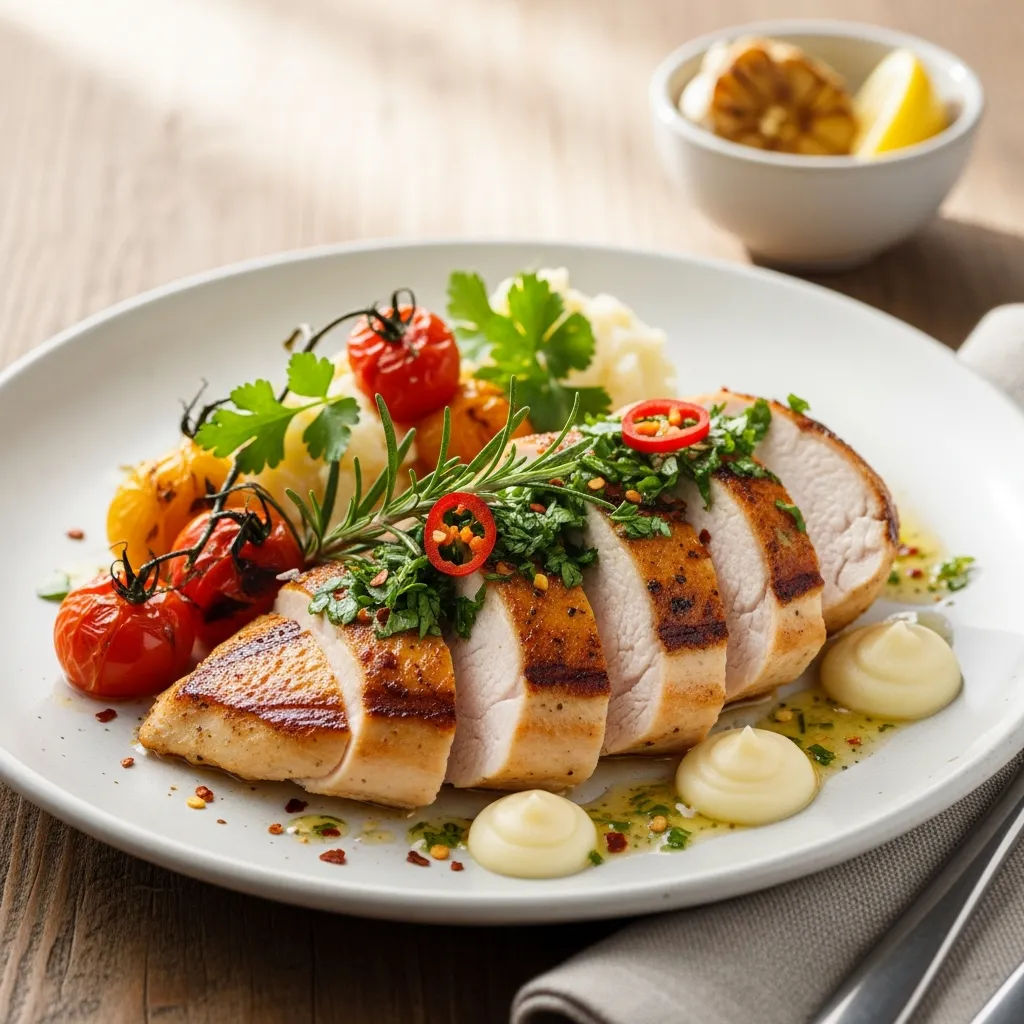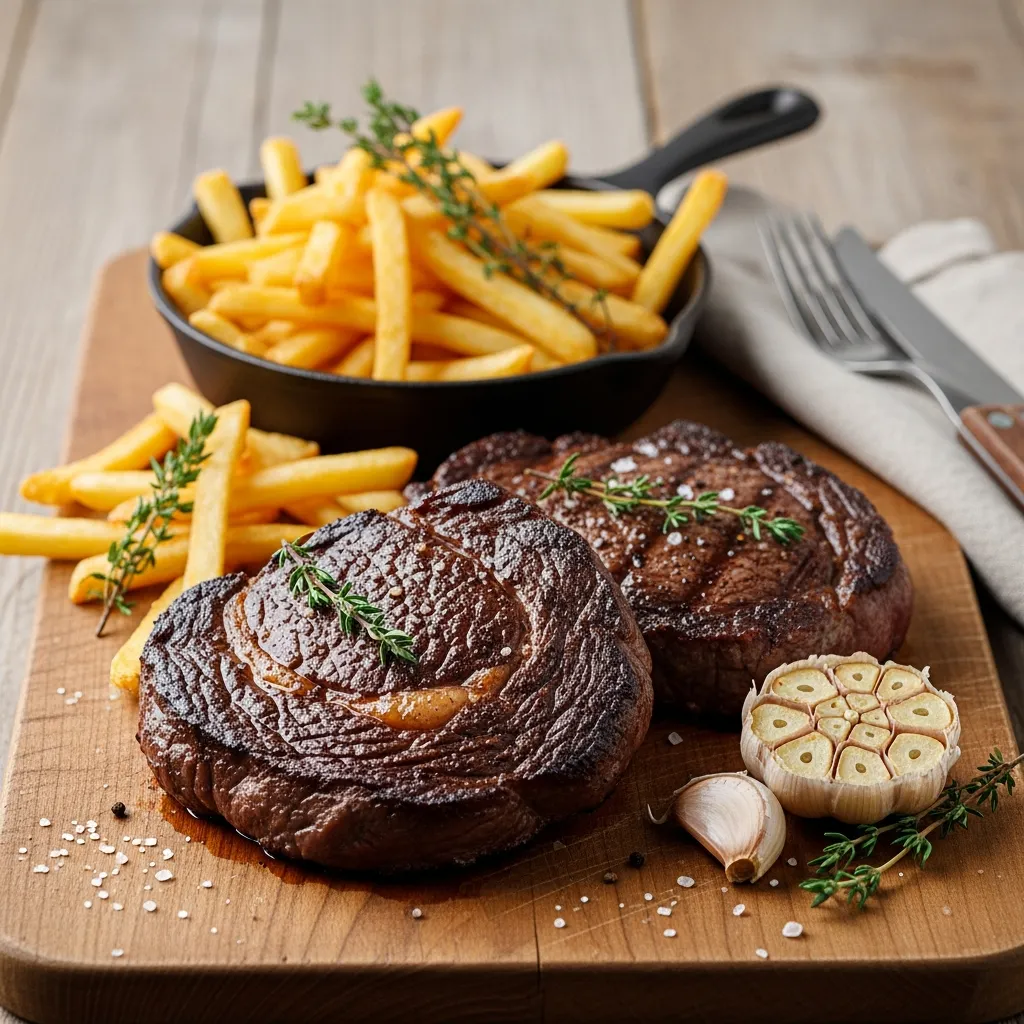Have you ever found yourself craving a protein-rich snack that aligns with your dietary requirements while still delivering that satisfying chew and flavor? Making halal beef jerky at home might be the answer you’ve been searching for. As someone who’s spent years perfecting the art of jerky-making, I can tell you there’s something deeply rewarding about transforming fresh cuts of halal beef into delicious, portable protein that keeps for weeks.
My journey with halal beef jerky began five years ago when my son, who follows halal dietary guidelines, couldn’t find commercial options that were both certified and free from questionable additives. What started as a weekend project turned into a family tradition—one that fills our home with mouthwatering aromas and our pantry with wholesome snacks.
Today, I’m sharing my tried-and-true halal beef jerky recipe that balances traditional techniques with modern flavors. Whether you’re looking for a gym snack, hiking fuel, or just something to munch during movie night, this recipe delivers protein-packed goodness without compromising your dietary principles.
Table of Contents
Ingredients for Perfect Halal Beef Jerky
Halal beef jerky starts with selecting the right cut of meat and balancing your seasonings. The key is using certified halal beef that’s lean and properly trimmed. Here’s everything you’ll need:

- 2 pounds of halal-certified beef (eye of round, top round, or flank steak)
- 1/4 cup low-sodium soy sauce (halal-certified)
- 2 tablespoons Worcestershire sauce (halal-certified with no alcohol)
- 2 tablespoons brown sugar (adjust to taste)
- 1 tablespoon smoked paprika
- 2 teaspoons freshly ground black pepper
- 1 teaspoon garlic powder
- 1 teaspoon onion powder
- 1/2 teaspoon cayenne pepper (optional for heat)
- 1 teaspoon sea salt
- 1 tablespoon olive oil
For a smoky variation, add 1 teaspoon of liquid smoke to your marinade. If you’re avoiding sugar, substitute with 1 tablespoon of honey or date syrup for a natural sweetener that works beautifully in halal beef jerky recipes.
Timing
- Prep time: 30 minutes (plus 6-24 hours marinating)
- Dehydrating/cooking time: 4-6 hours
- Total time: 5-30 hours (depending on marinating time)
The beauty of making halal beef jerky at home is that while it takes time, most of it is hands-off. This recipe actually requires less active time than many traditional jerky methods, giving you the freedom to handle other tasks while your beef transforms into savory perfection.
Step-by-Step Instructions for Halal Beef Jerky
Creating perfect halal beef jerky isn’t complicated, but attention to detail makes all the difference. Follow these steps for consistently delicious results:
Step 1: Prepare the Beef
- Place the beef in the freezer for 1-2 hours until firm but not completely frozen (this makes slicing easier)
- Remove any visible fat from the meat (fat can cause jerky to spoil faster)
- Slice the beef against the grain into 1/8 to 1/4 inch strips
- For a more tender chew, slice with the grain instead
Pro tip: Using a sharp knife makes all the difference when slicing halal beef for jerky. Dull knives create uneven slices that dry inconsistently.
Step 2: Create the Marinade
- In a large bowl, combine all marinade ingredients and whisk until well blended
- Taste the marinade and adjust seasonings if needed
- Add the sliced beef to the marinade, ensuring each piece is coated
- Cover and refrigerate for 6-24 hours (longer for more intense flavor)
Pro tip: For maximum flavor absorption, massage the marinade into the halal beef jerky slices and turn the meat every few hours if possible.
Step 3: Dry the Beef
- Preheat your oven to the lowest setting (ideally 160°F/70°C) or prepare your dehydrator
- Remove meat from marinade and pat dry with paper towels
- Arrange beef strips on dehydrator trays or on wire racks placed over baking sheets
- Ensure pieces don’t touch or overlap
Pro tip: Line baking sheets with foil and place a wire rack on top for oven drying. This catches drips and makes cleanup easier.
Step 4: Dehydrate Until Perfect
- For dehydrator: Dry at 160°F for 4-6 hours
- For oven: Dry at lowest setting with the door slightly ajar for 4-6 hours
- Check jerky regularly after the 3-hour mark
- Jerky is done when it bends and cracks but doesn’t break
Pro tip: The perfect halal beef jerky should be dry enough to store safely but still pliable—not brittle or rock hard.
Nutritional Information for Halal Beef Jerky
A 1-ounce serving (about 28g) of homemade halal beef jerky contains approximately:
- Calories: 70-90
- Protein: 12-15g
- Carbohydrates: 2-3g
- Fat: 2-3g
- Sodium: 400-500mg (varies based on marinade)
Halal beef jerky is an excellent protein source while remaining relatively low in calories and fat. Using eye of round or top round cuts ensures your jerky stays lean while delivering maximum protein per serving.
Equipment Needed for Halal Beef Jerky
Making halal beef jerky at home doesn’t require fancy equipment, but having the right tools helps:
- Sharp knife or meat slicer
- Cutting board
- Mixing bowls
- Plastic zip-top bags or glass container for marinating
- Food dehydrator OR oven with wire racks
- Paper towels
- Airtight storage containers
While a dedicated food dehydrator is ideal for consistent results, don’t worry if you don’t have one. I made halal beef jerky for years using just my oven before investing in a dehydrator.
Why You’ll Love This Halal Beef Jerky Recipe
After sharing this halal beef jerky recipe with dozens of friends and family members, here’s why it consistently earns rave reviews:
- Complete control over ingredients – No hidden additives or questionable ingredients that might violate halal guidelines
- Cost-effective – Making halal beef jerky at home costs 40-50% less than buying premium packaged versions
- Customizable flavor profile – Adjust spices and seasonings to suit your exact taste preferences
- Dietary compliance – Guaranteed halal because you control every step of the process
- Fresher taste – Commercial jerky often contains preservatives that affect flavor; homemade halal beef jerky tastes cleaner and more vibrant
My brother-in-law, who’s a competitive powerlifter following halal dietary guidelines, calls this his “secret weapon” for protein intake on competition days.
Healthier Alternatives for the Halal Beef Jerky Recipe
One of the benefits of making halal beef jerky at home is the ability to create healthier variations:
Lower Sodium Version:
- Reduce soy sauce to 2 tablespoons
- Use coconut aminos instead of soy sauce (bonus: it’s naturally sweeter)
- Decrease added salt by half
Sugar-Free Option:
- Replace brown sugar with 1/2 teaspoon of monk fruit sweetener
- Or use 1 tablespoon of pureed dates for natural sweetness
Extra Lean Version:
- Use only eye of round or wild game meat like venison (if available from halal sources)
- Skip the olive oil in the marinade
- Add 1 tablespoon of pineapple juice to tenderize naturally
I’ve found that halal beef jerky made with coconut aminos develops a wonderful umami flavor while containing about 70% less sodium than traditional recipes.
Serving Suggestions for Halal Beef Jerky
Your homemade halal beef jerky can be enjoyed in multiple ways:
- Pack in lunch boxes for a protein boost
- Crumble into salads for a savory topping
- Add to trail mix with nuts and dried fruits for balanced energy
- Serve alongside cheese and crackers for an easy appetizer
- Incorporate into grain bowls for extra protein
For a Middle Eastern twist, try serving your halal beef jerky with labneh (strained yogurt) and olive oil as a dip, alongside whole grain flatbreads from our HarmonyMeal collection.
Common Mistakes to Avoid When Making Halal Beef Jerky
Even experienced cooks can run into trouble with jerky. Here are the pitfalls to watch for:
Leaving too much fat on the meat – Fat doesn’t dehydrate and can cause your halal beef jerky to spoil quickly. Trim thoroughly.
Cutting inconsistent thicknesses – Uneven slices lead to some pieces overdrying while others remain too moist. Aim for uniform thickness.
Rushing the drying process – Increasing temperature to speed things up results in cooked meat, not jerky. Low and slow is the way to go with halal beef jerky.
Under-drying – If moisture remains, mold can develop. Your jerky should be dry to the touch but still flexible.
Skipping the patting dry step – Excess marinade on the surface extends drying time and can create a sticky texture.
The first batch of halal beef jerky I made suffered from several of these issues, but once I corrected them, the quality improved dramatically.
Storing Tips for Halal Beef Jerky
Proper storage extends the shelf life of your halal beef jerky:
Short-term Storage (1-2 weeks):
- Store in airtight containers or zip-top bags
- Keep at room temperature in a cool, dark place
- Add a food-grade desiccant packet to absorb any moisture
Long-term Storage (up to 3 months):
- Vacuum seal if possible
- Store in the refrigerator for maximum freshness
- For even longer storage, freeze in vacuum-sealed bags
Rehydrating Overly Dry Jerky:
If your halal beef jerky turned out too dry, place it in a container with a slice of bread overnight. The jerky will absorb moisture from the bread and become more pliable.
My family makes large batches of halal beef jerky about once a month, storing most in the refrigerator where it maintains perfect texture and flavor for weeks.
Conclusion
Making halal beef jerky at home connects you to an ancient food preservation technique while ensuring your snacks meet your dietary requirements. The process might seem lengthy at first, but the satisfaction of creating your own preservative-free, protein-rich snack is well worth the effort.
Remember that your first batch of halal beef jerky is just the beginning. Each time you make it, you’ll refine your technique and develop the perfect flavor profile for your palate. Don’t be afraid to experiment with different spices and cuts of meat—that’s part of the joy of homemade jerky.
Have you tried making halal beef jerky before? What flavors are you excited to try? Share your experiences in the comments below, or tag @HarmonyMeal in your jerky-making photos! And if you’re looking for more protein-rich snack ideas, check out our collection of halal-friendly protein snacks for more inspiration.
FAQs About Halal Beef Jerky
Can I use chicken or turkey to make halal jerky?
Yes, you can make halal jerky from poultry, but the process is slightly different. Poultry must be thoroughly cooked to 165°F (74°C) before dehydrating for food safety. The texture will be different from beef jerky, but many people enjoy it as a leaner alternative.
How do I know if my halal beef jerky is fully dehydrated?
Properly dried halal beef jerky should bend and crack but not break completely. When you squeeze a piece, it should feel firm with no moisture coming out. If you’re unsure, err on the side of drying longer, as under-dried jerky can spoil quickly.
Is liquid smoke halal?
Most commercial liquid smoke products are halal as they’re typically made by capturing smoke from burning wood, then condensing it into a water-based liquid. However, always check the ingredient list to ensure no alcohol has been added.
Can I make halal beef jerky in an air fryer?
Yes! Set your air fryer to its lowest temperature (usually 160°F/70°C) and dehydrate for 2-3 hours, checking frequently. The powerful fan in air fryers can actually speed up the drying process for halal beef jerky.
How can I tell if my halal beef jerky has gone bad?
Signs of spoilage include visible mold, off odors, unusual stickiness, or an extremely hard texture. When stored properly, homemade halal beef jerky typically stays good for 1-2 weeks at room temperature or up to 3 months refrigerated.
Halal Beef Jerky Secrets You Need to Try Today
This savory homemade halal beef jerky is protein-packed, customizable, and free from preservatives. Made with halal-certified beef and rich spices, it’s perfect for snacking, meal prep, or on-the-go nutrition.
- Prep Time: 30 minutes
- Cook Time: 4–6 hours
- Total Time: 5–30 hours (including marinating)
- Yield: 10–12 servings 1x
- Category: Snack
- Method: Dehydrated
- Cuisine: Middle Eastern
Ingredients
- 2 pounds halal-certified beef (eye of round, top round, or flank steak)
- 1/4 cup halal-certified low-sodium soy sauce
- 2 tablespoons halal Worcestershire sauce (no alcohol)
- 2 tablespoons brown sugar (or honey/date syrup)
- 1 tablespoon smoked paprika
- 2 teaspoons black pepper
- 1 teaspoon garlic powder
- 1 teaspoon onion powder
- 1/2 teaspoon cayenne pepper (optional)
- 1 teaspoon sea salt
- 1 tablespoon olive oil
- Optional: 1 teaspoon liquid smoke for a smoky flavor
Instructions
- Freeze beef for 1–2 hours until firm. Trim fat and slice against the grain into 1/8 to 1/4 inch strips.
- In a bowl, whisk together all marinade ingredients. Adjust flavor as needed.
- Add sliced beef to marinade and refrigerate for 6–24 hours.
- Preheat dehydrator or oven to 160°F. Pat beef dry and place on trays or racks without overlap.
- Dehydrate for 4–6 hours, checking after 3 hours. Jerky should bend and crack, not break.
- Cool completely and store in airtight containers. Use a food-grade desiccant packet if desired.
Notes
For lower sodium, use coconut aminos and reduce salt. For a sugar-free version, replace sweeteners with monk fruit or pureed dates. Jerky can also be made in an air fryer or dried using a wire rack in the oven. Always ensure your soy/Worcestershire sauce is halal-certified.
Nutrition
- Serving Size: 1 ounce
- Calories: 80
- Sugar: 2g
- Sodium: 450mg
- Fat: 2.5g
- Saturated Fat: 0.5g
- Unsaturated Fat: 2g
- Trans Fat: 0g
- Carbohydrates: 3g
- Fiber: 0g
- Protein: 14g
- Cholesterol: 25mg
Follow & Join the Harmony Meal Community
📌 Love indulging in rich and cheesy comfort food?
Get inspired with more crave-worthy breakfasts, comforting dinners, and irresistible desserts.
👉 Follow us on Pinterest for easy-to-save recipes and meal ideas you’ll actually want to make.
📘 Let’s be foodie friends!
Join our community of passionate home cooks and flavor chasers.
👉 Follow Harmony Meal on Facebook to share your own dishes, get exclusive content, and connect with others who love to eat and create.












